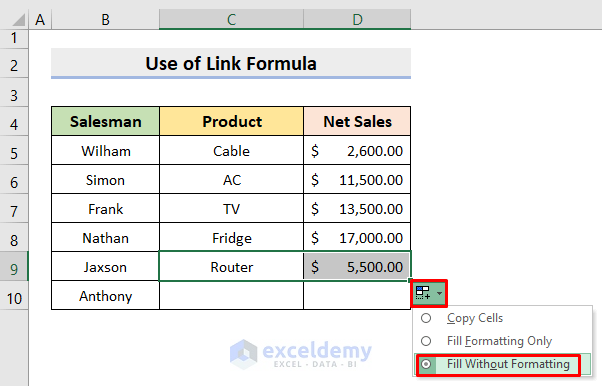5 Easy Ways to Link Excel Sheets for Better Data Management

Excel spreadsheets are essential tools for managing and analyzing data in various business settings, from small enterprises to large corporations. Efficiently managing data across multiple sheets not only increases productivity but also enhances accuracy and enables deeper insights. Linking Excel sheets is one of the most effective techniques for improving data management. Here, we'll explore five straightforward ways to link Excel sheets, enhancing your ability to organize, update, and analyze data seamlessly.
1. Using Excel’s Built-in Functions

Excel provides several built-in functions to link sheets, making it easier to consolidate data from different sources:
- VLOOKUP or HLOOKUP: These functions allow you to search for a value in one column or row and return a value from the same row or column in another table. For example:
=VLOOKUP(A2, Sheet2!A:B, 2, FALSE)
This formula looks up the value in cell A2 of the current sheet in the first column of Sheet2 and returns the corresponding value from the second column in the same row.
- INDEX and MATCH: Often used together to achieve similar results to VLOOKUP, but with more flexibility:
=INDEX(Sheet2!B:B, MATCH(A2, Sheet2!A:A, 0))
This formula finds the position of A2 in Sheet2’s first column and then returns the corresponding value from the second column.
2. Hyperlinks

Hyperlinks in Excel aren’t just for websites; you can use them to navigate between sheets or workbooks:
- Select a cell, then go to Insert > Hyperlink. Here, you can:
- Link to another Sheet: Choose “Place in This Document” and select the desired sheet.
- Link to Another Workbook: Select “Existing File or Web Page” and navigate to the file.
3. Data Consolidation

When you need to combine data from multiple sheets:
- Use the Data Consolidation tool found under Data > Consolidate to pull data from different ranges:
- Choose your function (Sum, Count, etc.).
- Select the ranges from which to consolidate.
- Excel will then merge this data into a summary table on your current sheet.
| Function | Example Use Case |
|---|---|
| SUM | To add up values across sheets |
| AVERAGE | To find the average of data points |
| COUNT | To count the number of entries |

4. Power Query

Power Query, an Excel add-in, is powerful for linking data from multiple sources:
- From the Data tab, select Get Data > From Other Sources > Blank Query. Here, you can:
- Import Data: From various sources like other Excel files, SQL databases, or online services.
- Transform Data: You can clean, reshape, and prepare the data as needed.
- Merge Queries: Combine data from multiple sources into a single query.
5. Macros and VBA

Visual Basic for Applications (VBA) allows for complex linking and automation:
- Open the VBA editor with Alt + F11 and write a script to automate tasks. Here is a simple example to link data:
Sub LinkData()
ThisWorkbook.Sheets(“Sheet1”).Range(“A1”).Value = ThisWorkbook.Sheets(“Sheet2”).Range(“B2”).Value
End Sub
🚀 Note: Always be cautious when using macros, as they can execute code on your computer. Ensure you trust the source of any macro you run.
This summarizes our exploration of linking Excel sheets for better data management. Implementing these strategies can streamline your work processes, reduce errors, and provide a more dynamic interaction with your data. By linking sheets, you not only connect different parts of your workbook but also make your data analysis more robust and efficient, allowing for a clearer picture of your business metrics or project statuses.
Why should I link Excel sheets?

+
Linking Excel sheets helps in maintaining consistency, reducing data entry errors, and enabling dynamic updates across multiple sheets, enhancing overall data management.
Can I link data from different workbooks?

+
Yes, you can use Excel functions like VLOOKUP or Power Query to link data from different workbooks, allowing for cross-document analysis.
What are the potential drawbacks of linking sheets?

+
The main drawbacks include potential file corruption if links are broken, slower workbook performance with many links, and the complexity of maintaining links over time.
Is there an alternative to linking sheets for data management?

+
Yes, alternatives include using external databases, cloud-based solutions like Google Sheets or Microsoft 365, or more advanced data management tools designed for specific industries or purposes.